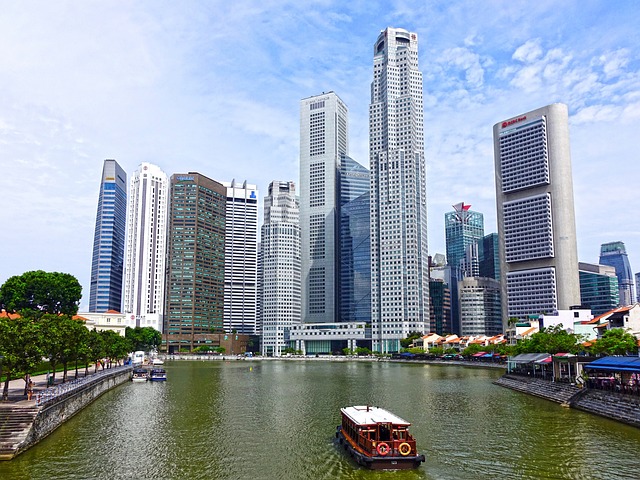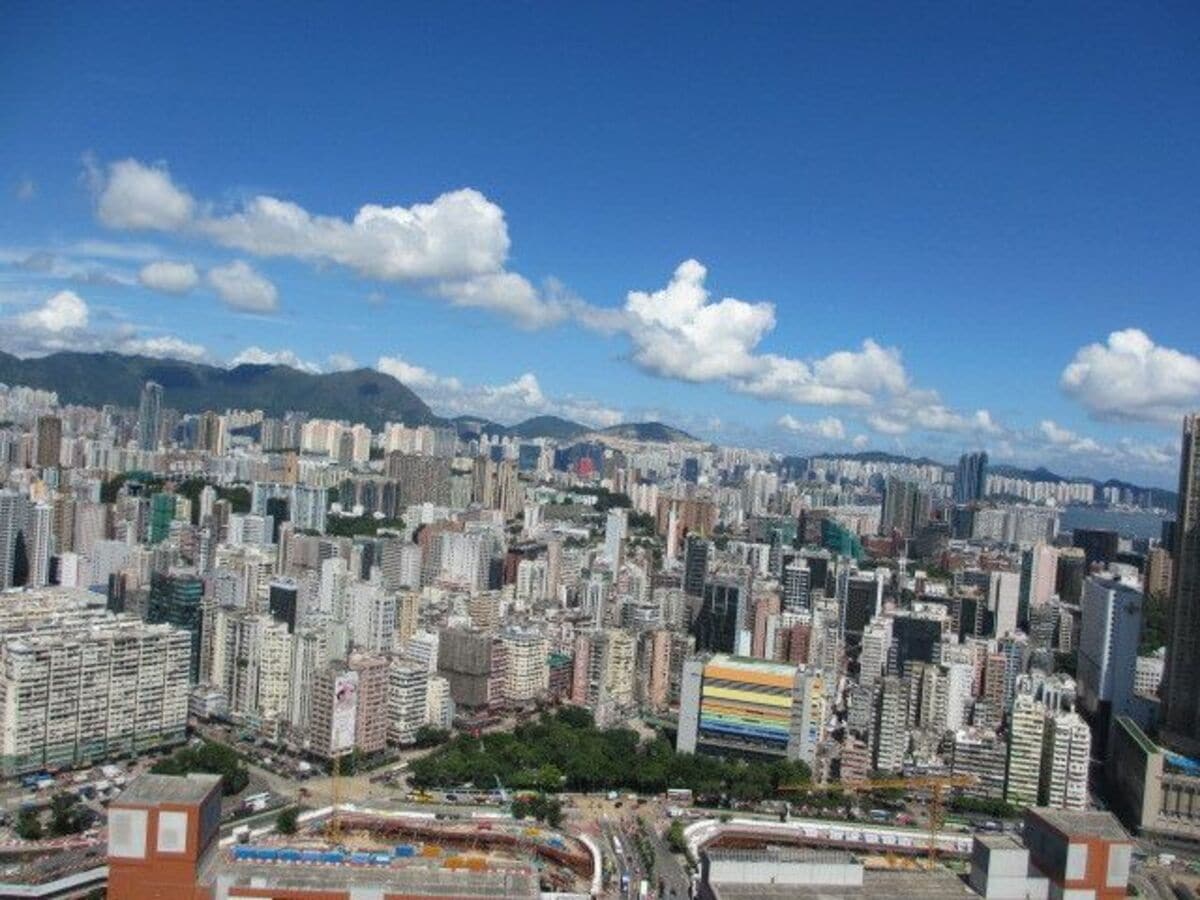Hong Kong is often perceived as a wealthy city, largely due to its significant status as an international financial hub. However, this perception doesn’t always align with reality. This blog delves into the actual average annual income in Hong Kong, the underlying issue of economic disparity, salary rankings by profession, and the spending and investment habits of Hong Kong residents. Our aim is to provide readers with a fresh perspective on Hong Kong’s economic landscape, moving beyond its glamorous facade to uncover the true economic situation.
- 1 1. The Reality of Hong Kong’s Average Income – A Different Picture Than Its Affluent Image
- 2 2. Hong Kong’s Stratified Society – The Income Gap Between the Rich and General Population
- 3 3. Average Annual Income Rankings by Profession in Hong Kong
- 4 4. How Hong Kongers Spend Their Money and Their Investment Trends
- 5 5. Cost of Living and High Prices in Hong Kong
- 6 Conclusion
- 7 Frequently Asked Questions (FAQs)
- 7.1 What is the average annual income in Hong Kong?
- 7.2 What is the income disparity like between the wealthy and the general population in Hong Kong?
- 7.3 Which professions offer the highest income potential in Hong Kong?
- 7.4 What are the characteristics of Hong Kongers’ spending habits and investment trends?
- 8 References
1. The Reality of Hong Kong’s Average Income – A Different Picture Than Its Affluent Image

Complex Economic Landscape
While Hong Kong is renowned for its economic growth and as a business hub, the widespread image of it being an affluent city doesn’t always reflect the full picture. According to the latest data, the median annual income for employed individuals in Hong Kong during the third quarter of 2022 was approximately **3.69 million JPY (approximately 23,600 USD)**, which might seem surprisingly low to some.
Student Career Start
The average annual income for recent university graduates is estimated to be around **4.6 million JPY (approximately 29,400 USD)**. While this figure might seem high in general, the reality varies significantly depending on the specialized field. The starting salary can differ greatly based on the industry one enters, making career paths more complex.
Income Imbalance
Annual income is influenced by numerous factors, including industry, location, work experience, education level, and job position. It’s crucial to remember that the average annual income is merely a statistical figure, and many individuals in Hong Kong face significant economic challenges.
Influence of the Wealthy Class
More than 520,000 affluent individuals in Hong Kong possess assets exceeding 10 million Hong Kong Dollars (approximately 1.4 million USD), accounting for about 8.7% of the total population. This phenomenon contributes to inflating the overall average income. The presence of such a wealthy class can potentially create misconceptions about the economic situation of average citizens.
Overview
As we can see, beneath its surface prosperity, Hong Kong faces various economic realities. While its superficial affluence is called into question, the existence of wealth disparity is undoubtedly a critical factor in understanding Hong Kong’s economic structure.
2. Hong Kong’s Stratified Society – The Income Gap Between the Rich and General Population

Despite its vibrant urban facade, Hong Kong is a stratified society with significant wealth disparity. This section explores the income differences between the affluent and general population in Hong Kong.
The Overwhelming Presence of the Wealthy
In Hong Kong, there are as many as 515,000 affluent individuals with assets exceeding 10 million Hong Kong Dollars (approximately 1.4 million USD). This accounts for about 8.7% of Hong Kong’s entire population. This segment, which holds a large proportion of the assets, has accumulated wealth not just in income but also in substantial assets. These wealthy individuals often own high-value real estate and routinely enjoy international travel and dining at upscale restaurants.
The Reality for the General Population
On the other hand, the annual income for the average Hong Kong citizen is not necessarily high. According to data from the third quarter of 2022, the median annual income for employed individuals in Hong Kong is about 3.69 million JPY (approximately 23,600 USD). This makes it quite challenging to maintain a typical lifestyle, with many feeling the pinch due to high housing and food costs.
Industry-Specific Salary Differences
Annual income also varies significantly by industry. For instance, individuals working in the **finance industry** earn high incomes, while in many other sectors, income growth is often stagnant. Furthermore, individuals with higher education and specialized skills tend to earn higher incomes, indicating that differences in education and work experience directly translate into income disparities.
Impact of Income Disparity
Such income disparity profoundly affects young people and lower-income groups. For example, even with education, many struggle to secure good jobs and achieve economic stability. Moreover, many young people are burdened by high living costs and harbor anxieties about their future. The absence of a pension system has also exacerbated poverty among the elderly, leading to widespread economic insecurity across society.
Efforts to Address Inequality
The government and civic organizations must implement measures to address this issue of social inequality. Revising tax systems for the wealthy and enhancing public services are necessary to support lower-income groups. Additionally, efforts to equalize educational opportunities and ensure that all individuals can lead stable lives are essential.
3. Average Annual Income Rankings by Profession in Hong Kong

Hong Kong is known as an international financial center, and certain professions within it command particularly high annual incomes. Below, we present a ranking of average annual incomes by profession in Hong Kong.
1. Finance-Related Professions
**Finance-related jobs** are among the highest-earning professions in Hong Kong. Individuals in positions at **investment banks** and **asset management companies** often see their annual incomes significantly increase. The average annual income generally exceeds **70,000 Hong Kong Dollars (approximately 8,900 USD) per month or 106,800 USD annually**.
2. IT and Technology Professions
With recent advancements in technology, **IT-related professions** have seen rapid growth. Specialists such as **data scientists** and **system engineers** earn around **50,000 Hong Kong Dollars (approximately 6,400 USD) per month or 76,800 USD annually**, with potential for higher amounts based on experience and skills. The **FinTech** sector has also gained significant attention recently, leading to an increase in job opportunities.
3. Healthcare Professionals
**Healthcare professions** are also highly regarded. **Specialist doctors** and **surgeons**, in particular, can earn annual incomes exceeding **80,000 Hong Kong Dollars (approximately 10,200 USD) per month or 122,400 USD annually**. The demand for healthcare professionals is consistently high, making this a profession with stable income potential.
4. Legal Professions
**Lawyers** and **legal advisors** play a crucial role in Hong Kong’s business community. Experts handling international legal affairs generally earn over **60,000 Hong Kong Dollars (approximately 7,600 USD) per month or 91,200 USD annually**, with potential for even higher incomes depending on qualifications and experience.
5. Education-Related Professions
The **education sector** is also one of the higher-earning professions. **University professors** and **vocational school instructors**, in particular, often earn over **40,000 Hong Kong Dollars (approximately 5,100 USD) per month or 61,200 USD annually**. With increasing investment in education in Hong Kong, demand in this sector is also growing.
Summary
The average annual income in Hong Kong varies significantly by profession. Finance-related professions lead the rankings, followed by IT, healthcare, and legal fields. Meanwhile, education-related professions also offer stable income potential, making them fields of high interest. These professions are closely linked to Hong Kong’s unique economic structure.
4. How Hong Kongers Spend Their Money and Their Investment Trends

Hong Kong residents’ spending habits and investment attitudes are shaped by their unique cultural background. This section focuses on the consumption behaviors and asset-building methods of Hong Kongers.
Family-Oriented Living Style
In Hong Kong, households often consist of multiple generations, which **contributes to controlling living expenses**. By living together, families can pool their household income, strengthening their economic power. This form of communal living is effectively utilized by Hong Kongers as a means to increase savings.
High Investment Awareness
As an international financial center, Hong Kong has a very high interest in investment. Particularly with the **widespread adoption of online trading platforms**, access to stocks and mutual funds has become easier. Many Hong Kongers can be seen checking the market on their smartphones during commutes, routinely engaging in asset management.
Tax Advantages
Hong Kong’s tax system is very favorable towards asset management. Income tax is low at 15%, and there is generally no tax on **capital gains** or **dividends**. Such **tax benefits accelerate wealth accumulation**. Hong Kongers are inclined to grow their assets more quickly through investments.
Daily Spending Patterns
While the cost of living in Hong Kong is relatively high, residents are ingenious in managing their expenses. While they tend to minimize transportation and casual dining costs, they do allocate a certain amount for upscale restaurants and entertainment. Spending on meals with friends and social events is particularly important for Hong Kongers’ lives. Furthermore, with growing health consciousness, expenditures on fitness and sports-related activities are also on the rise.
Investment Diversification and Risk Management
Recently, Hong Kongers have been diversifying their investments, showing increased interest not only in the stock market but also in real estate and cryptocurrencies, among a wide range of options. It has become common for many to combine multiple investment products to diversify risk and actively work on their asset building.
Thus, Hong Kongers’ consumption behavior and investment trends are unique, reflecting their cultural background. They effectively manage living expenses through communal family living while actively engaging in asset management leveraging their financial literacy.
5. Cost of Living and High Prices in Hong Kong

Overall Picture of Prices
Hong Kong is widely known as a city with a high cost of living, but the actual expenses fluctuate due to various factors. It’s crucial to be aware of specific figures, especially for basic expenditures like rent, groceries, and transportation, which account for a significant portion of the cost.
Rent Burden
The cost of housing in Hong Kong varies significantly by residential area but is generally very high. For instance, renting a small room less than 20 square meters can cost anywhere from **40,000 JPY (approximately 255 USD) to over 100,000 JPY (approximately 640 USD) per month**. On the other hand, a public housing scheme also exists, offering rentals for low-income individuals at less than 50,000 JPY (approximately 320 USD) per month. As such, rent prices in Hong Kong have a wide range, making it key to choose an area that suits your lifestyle.
Food Costs and Dining Out
In Hong Kong, a city with a rich food culture, dining out expenses are also a significant factor. Meals at local restaurants and street stalls are relatively inexpensive, but a single meal at upscale restaurants or popular sushi places can often exceed tens of thousands of JPY. Tourist-oriented establishments, in particular, tend to be more expensive than the market rate, so caution is advised. Generally, the volume of food expenses largely depends on whether one primarily dines out or cooks at home.
Reasonable Transportation Costs
Conversely, public transportation fares are very reasonable. Using the MTR (subway) or buses allows for travel at about half the cost compared to urban areas in Japan. This is a significant advantage, especially for young people, as it provides an efficient way to get around while keeping living costs down.
Daily Necessities and Service Charges
Furthermore, the prices of daily necessities and services reflect Hong Kong’s unique situation. Many common food items and household goods are imported from nearby China, so some types may not differ much in price from Japan. However, imported goods and brand-name products are expensive, requiring choices that fit one’s lifestyle. Services like beauty treatments and dry cleaning are also priced higher for their quality.
Balance of Expenses and Income
While the cost of living in Hong Kong is considered high, its comprehensive public services mean that with careful planning, it’s possible to achieve a high quality of life. The fact that family living is common, thereby distributing the financial burden, should also not be overlooked. This diversity is part of Hong Kong’s appeal and a significant factor when considering living there.
Conclusion
Despite its outward prosperity and affluent image, Hong Kong faces complex challenges such as economic disparity and high living costs. The income gap between the wealthy and the general population is significant, with education and work experience greatly influencing income levels. However, Hong Kong also exhibits unique economic coping strategies, such as curbing living expenses through multi-generational cohabitation and a high awareness of investment. While the cost of living is indeed high, a high quality of life can be achieved with appropriate choices and ingenuity. Understanding Hong Kong’s complex economic situation can lead to a deeper appreciation of the city’s appeal.
Frequently Asked Questions (FAQs)
What is the average annual income in Hong Kong?
The median annual income for employed individuals in Hong Kong is approximately 3.69 million JPY (approximately 23,600 USD). However, there are significant differences depending on the industry and job position, so it cannot be universally stated as high. The presence of wealthy individuals inflates the average income, making it important to understand the challenging economic situation of the general population.
What is the income disparity like between the wealthy and the general population in Hong Kong?
More than 520,000 affluent individuals in Hong Kong possess assets exceeding 10 million Hong Kong Dollars (approximately 1.4 million USD), accounting for 8.7% of the total population. In contrast, the median annual income for the general population is about 3.69 million JPY (approximately 23,600 USD), indicating a challenging living situation. Significant income disparities based on industry and educational background greatly impact young people and lower-income groups.
Which professions offer the highest income potential in Hong Kong?
In the ranking of average annual incomes by profession in Hong Kong, finance-related jobs top the list. Professionals in investment banks and asset management companies typically earn over 70,000 Hong Kong Dollars (approximately 8,900 USD) per month. Other professions with high income potential include IT and technology, healthcare, legal, and education-related roles.
What are the characteristics of Hong Kongers’ spending habits and investment trends?
Hong Kongers tend to curb living expenses by living with family while actively engaging in investments. The widespread adoption of online trading has popularized investments in stocks and cryptocurrencies. They also aim for more efficient asset building by leveraging tax advantages. On the other hand, they exhibit balanced spending habits, allocating a certain amount for dining out and entertainment.
References
アメリカの大手銀行で香港でも多くに支店網を抱えるシティバンクは4月8日、裕福層の実態調査「香港千萬富翁調査報告2020(…













